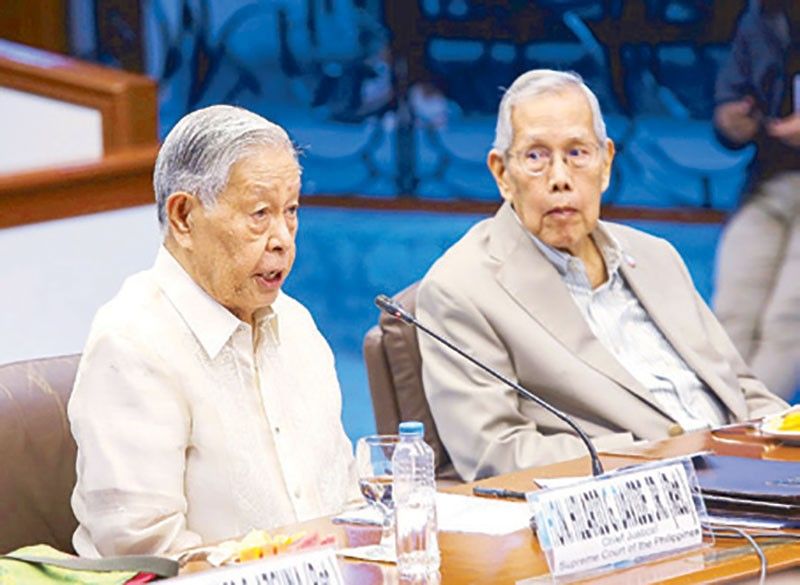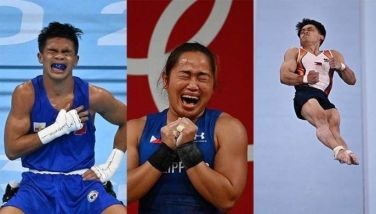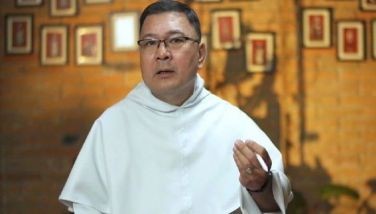‘House, Senate must act as one body to amend 1987 Charter’

MANILA, Philippines — The Senate and the House of Representatives voting separately to amend the Constitution is disregarding “the fact that Congress is not acting as a legislative body, Congress is acting as a constituent assembly,” former Supreme Court Justice Vicente Mendoza said yesterday.
“Isa lamang po. Isa lamang asembleya (Just one, just one assembly) not Congress. Because when we speak of Congress, we speak of the two Houses, we imply the House and the Senate. But when we speak of a constituent assembly, we call on the Congress to wear its other hat, that is as a constituent assembly,” he said.
Mendoza said amending the Constitution is not the work of Congress but a non-legislative function of a constituent assembly.
“The amendment of the Constitution is not the work of Congress; it is a non-legislative function. It is just as important as the declaration of a state of war which requires Congress to meet jointly as one assembly and vote separately,” he said.
Mendoza enumerated other instances when Congress acts as a constituent assembly doing non-legislative work: as national board of canvassers counting the votes for president and vice president, when confirming the president’s nomination of a vice president in case of a vacancy in the vice-presidency, when resolving the issue of the cabinet believing that the president is disabled from performing his official duties but the president believes otherwise, and when revoking a declaration of martial law and suspension of the privilege of habeas corpus.
“If you regard the amendment of the Constitution as important as that [the declaration of war], don’t you think that this silence in Article 17 as to how Congress should act as a constituent assembly, would there be doubt in your mind that it is not Congress as a lawmaking body but it wears a different hat, that of being a constituent assembly?” he added.
Article 17 of the 1987 Philippine Constitution refers to Amendments or Revisions. Mendoza also cited the decisions of the Supreme Court on Tolentino vs Comelec and Gonzalez vs Comelec.
“The Supreme Court said, ‘When they act as an assembly, they do not act with any distinction whether they are senators or congressmen. They are as one assembly, members of constituent assembly,’” he said.
Warning aired
Amending some provisions of the 1987 Constitution can breed more problems than it can solve, retired Supreme Court justices said yesterday.
The magistrates aired the warning at the first public hearing yesterday on Resolution of Both Houses 6 (RBH6) by the Senate sub-committee on constitutional amendments chaired by Sen. Sonny Angara.
Retired chief justice Hilario Davide Jr. said he is opposed to any amendment that would compromise nationalism and patriotism. He noted that the law provides that educational institutions are mandated to lead in the promotion of patriotism, love for history and in strengthening ethical and moral values.
Angara, however, manifested that the proposal would cover “the higher tertiary education, not basic education precisely because of the fears you enunciated, that perhaps nationalism might be watered down, among others.”
Davide pointed out the economy is not growing due to sloppy and poor government management. “These are all caused by the failures to fully implement the Constitution, poor accountability, open violations… Public office must at all times be accountable to the people,” he said.
“I repeat what I had been asserting before, that relaxing the Filipino citizenship requirements in economic provisions in the country would easily convert our Congress into a fee, F-E-E market of lobbyists and foreign countries or businessmen to obtain amendments in their favor,” the retired chief magistrate said.
“Congress would cease to be a free, FREE market, novel, nationalistic, patriotic, ideals and ideas. Remember that the Senate is the conscience of the Republic,” Davide added.
Mendoza said he does not support RBH6, as it contradicts the Constitution.
“The reasons I’m opposed to RHB6 are two things. No. 1, RBH6 undermines Article 2, principles on which our Constitution-Republic is founded. No. 2, it disregards the basic principle that any change in the Constitution must be made in accordance with that provision, not by Congress as a legislative body,” Mendoza added.
“The Constitution is the fundamental law of the land. The Constitution is the highest law of the land. Any law that is against the Constitution is void,” he pointed out.
Former justice Adolfo Azcuna, on the other hand, said he favors removing the restrictions on economic provisions, but not through Charter change but through legislation or the adoption of laws.
“(The issue on) economic provisions, development of natural resources, ownership of land, operations of public utilities are not new, if it’s because of these that we are in dire poverty, don’t blame the present Constitution, it’s been there since 1935,” Azcuna said.
- Latest
- Trending































